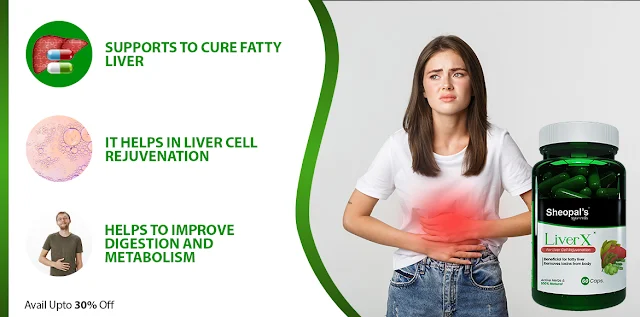How Fasting Can Help To Heal In Non Alcoholic Fatty Liver Diseases
Non-alcoholic fatty liver disease (NAFLD) is a growing concern, affecting millions worldwide. It occurs when excess fat accumulates in the liver, even in people who don't drink much alcohol. While there's no magic bullet cure, research suggests that fasting can be a powerful tool for managing NAFLD and promoting liver health.
Understanding NAFLD:
Your liver is a vital organ responsible for filtering toxins, producing proteins, and regulating metabolism. In NAFLD, excessive fat buildup disrupts these functions, potentially leading to inflammation and scarring (fibrosis) over time. This can progress to advanced stages of NAFLD, like non-alcoholic steatohepatitis (NASH), which carries a higher risk of liver failure and even cancer.
The Power of Fasting:
Fasting involves abstaining from food for a set period. While various fasting methods exist, some popular approaches for NAFLD include:
Time-restricted feeding (TRF): You condense your eating window to a specific time frame each day, like 8 hours, and fast for the remaining hours.
Alternate-day fasting (ADF): You alternate between eating days and fasting days, consuming 500 calories or less on fasting days.
How Fasting Helps:
Here's how fasting can benefit your liver in NAFLD:
Weight Management: NAFLD is often linked to excess weight. Fasting can promote weight loss, which helps reduce liver fat content. While fasting don’t take any allopathic or ayurvedic medicine for liver without your doctor consultation.
Improved Insulin Sensitivity: Fasting improves your body's ability to use insulin, a hormone crucial for regulating blood sugar. This reduces stress on the liver, which often overworks to manage high blood sugar levels in NAFLD.
Cellular Repair: During fasting, the body enters a state called cellular autophagy, where it "cleans house" by removing damaged cells and promoting the regeneration of healthy ones, potentially benefiting the liver.
Reduced Inflammation: Fasting can help lower inflammation markers associated with NAFLD progression.
Research on Fasting and NAFLD:
Studies are showing promising results for fasting in NAFLD management. A review published in Frontiers in Nutrition [1] found that intermittent fasting (including methods like TRF and ADF) led to significant weight loss and improved liver function in NAFLD patients. Another study in Cell Metabolism [2] showed that alternate-day fasting combined with exercise effectively reduced liver fat and improved insulin sensitivity in individuals with NAFLD.
Fasting for You:
While fasting offers potential benefits, it's not a one-size-fits-all approach:
Consult your Doctor: Discuss fasting with your doctor to determine if it's safe for you, especially if you have other health conditions or take any liver detox medicine
Start Gradually: Begin with shorter fasting windows and gradually increase them as your body adjusts.
Stay Hydrated: Drink plenty of water during fasting periods to stay hydrated and support your body's functions.
Nutrient-Rich Meals: Focus on consuming nutritious meals during your eating window. Prioritize fruits, vegetables, whole grains, and lean protein sources.
Listen to Your Body: Pay attention to your body's signals. If you experience dizziness, fatigue, or other concerning symptoms, break the fast and consult your doctor.
Complementary Practices for Liver Health:
Fasting can be a powerful tool, but it's not the only approach to NAFLD management. Consider these practices alongside fasting:
Healthy Diet: Maintain a balanced diet rich in fruits, vegetables, and whole grains while limiting processed foods, sugary drinks, and unhealthy fats.
Exercise: Regular physical activity can improve insulin sensitivity and overall health, benefiting your liver.
Stress Management: Chronic stress can worsen NAFLD. Techniques like yoga, meditation, or deep breathing can help manage stress.
Ayurvedic approach to treat NAFLD
Ayurvedic medicine for liver health is another area of interest for individuals seeking natural approaches to support liver function in the context of NAFLD. Ayurveda, an ancient system of medicine originating in India, offers a holistic approach to health and wellness, with a focus on balancing the body, mind, and spirit. The best ayurvedic medicine for liver made with potent Ayurvedic herbs and targeted at liver health may offer potential benefits for individuals with NAFLD. However, as with any supplement or natural remedy, it is important to use ayurvedic medicine under the guidance of a qualified practitioner and to be mindful of potential interactions with other medications.




Comments
Post a Comment